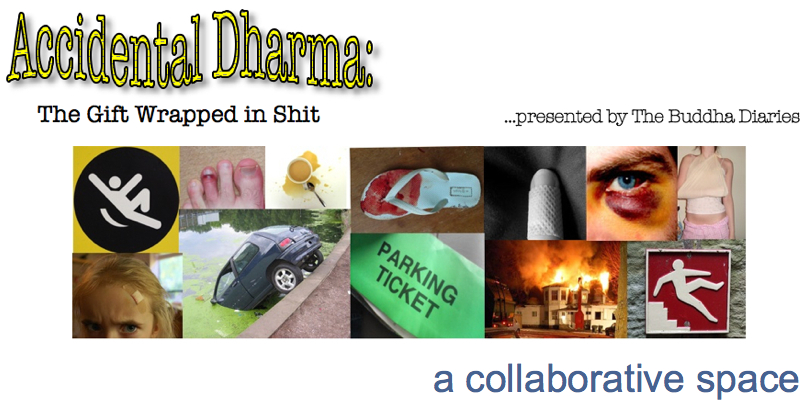Posted by Gary
at Forest Wisdom
Recently, I wrote about a conflict with a colleague at the school where we work. (See below: ‘Anger on the Forest Path.’) Mishearing something I said, he snapped and shouted at me using foul language, to which I responded in kind, caught off guard, as it were. I’ve had a couple of weeks to reflect on the incident in the light of the Dhamma, and have realized that self-view (sakkaya-ditthi) played a big role in my initial response to my angry workmate.
I reacted in a state of partial shock and indignation at being verbally accosted: thinking that I knew myself, I felt that Gary didn’t deserve the harsh treatment that he received. This led to nearly two weeks of silence between us, despite the fact that we sit next to each other in the English teachers’ office. All the while I’ve been reflecting on my response to my fellow teacher, pondering how I could’ve handled the situation better.
One thing that I realized was that I grasped at my self-image as a friendly Buddhist that had never said or done anything to offend this guy, therefore undeserving of his verbal onslaught. But, is this self-perception accurate? And even if it is, is it worth clinging to as an absolute truth about myself? Overall, I am an amiable kind of chap, but my dry sense of humor sometimes runs the risk of offending those that don’t understand it. As to clinging to this view of myself, I’m not so sure that that is so wise, however. For, when that image is attacked or contradicted, I’m left feeling unsure of who I am, and open to reacting in an uncharacteristic way. What’s more, considering the ever-changing nature of all things, including this thing called Gary, it’s not always going to be true, putting pressure on myself to live up to an ideal that’s sometimes unattainable.
The late, great forest monk Luang Poo Chah noted that usually people close up when they encounter something or someone disagreeable, such as when we’re criticized. He suggested that when we’re criticized we should open up to the experience, as maybe there’s some truth in what’s being said too us. Intelligent people don’t take offence at criticism, but reflect on it to see if it’s true, and if it is, work to improve ourselves. Responding from the position of awareness, rather than identifying with the viewpoint of self (sakkaya-ditthi), we stand a better chance of using such situations for the development of wisdom, as opposed to simply perpetuating ill-feeling of misunderstanding.
As a footnote, my colleague and I have tentatively begun talking to one another again, being careful not to say anything potentially inflammatory. Opening up to my workmate from the position of awareness, rather than as ‘Gary the Buddhist,’ I’m open to his humanity, both positive and negative. In this state of spaciousness, I can give him the space to be himself, including those aspects that I might not approve of. And in doing so, I actually become a better Buddhist, without clinging to any self-image of myself as such. This is also more compassionate towards myself, as I’m no longer under the pressure to act (and appear) as some perfect Buddhist; just recognizing that whatever’s the case right now is good enough.
Tuesday, February 12, 2008
Subscribe to:
Post Comments (Atom)


No comments:
Post a Comment